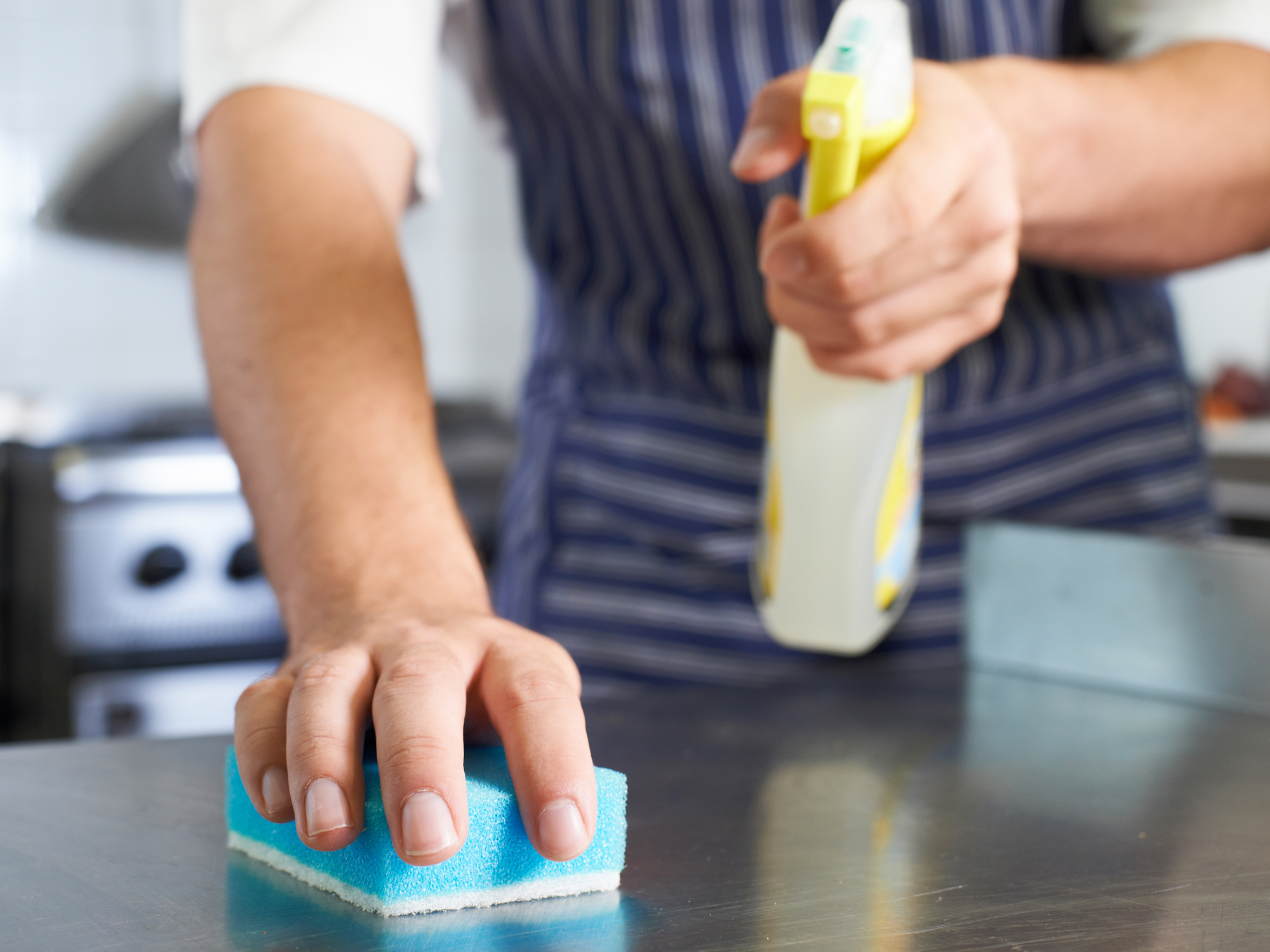Get Easy Health Digest™ in your inbox and don’t miss a thing when you subscribe today. Plus, get the free bonus report, Mother Nature’s Tips, Tricks and Remedies for Cholesterol, Blood Pressure & Blood Sugar as my way of saying welcome to the community!
Keep your kitchen germ-free without destroying the planet or your health

Americans use more than 13 billion pounds of paper towels every year. Worldwide, discarded paper towels account for 254 million tons of trash annually.
Obviously, anyone concerned with the environment uses cloth dish towels, not paper… right? There’s just one problem: dish towels are hotbeds of disease-causing germs, while paper towels are sanitary and do not spread diseases.
When researchers at the University of Mauritius cultured bacteria from 100 kitchen towels, they found that 49 percent were growing bacteria normally found in the human intestine, including E. coli and Enterococcus.
E. coli can cause severe abdominal cramping, diarrhea and nausea, while Enterococcus can cause pelvic infections, blood poisoning, meningitis and more.
Related: Housecleaning harms like a 20 year smoking habit
The researchers also found that another 14 percent of the towels were growing colonies of staph bacteria! Both staph and E. coli have strains that are antibiotic resistant, so not only are you spreading germs in your kitchen, but your quest to save the planet could very well put your health in danger.
So, how to keep your kitchen sanitary without contributing to the destruction of the planet — or your health? Here are some tips…
Dish towel tips
Stock up on dish towels and rags. That way you never have to re-use a dirty or contaminated one.
Keep a laundry basket in the kitchen and use it only for soiled towels. A towel that’s been used on raw meat or one that’s wet and ready to invite mold can be discarded immediately, away from the rest of your laundry.
Let your dish towels air dry before placing them in the hamper to prevent mold and mildew.
Change towels after wiping counters with raw meat. Raw eggs, too. Food-borne illnesses spread like wildfire with the touch of a contaminated towel.
Avoid fabric softener. It puts a filmy coating on laundry that could prevent your towels from getting completely clean in the wash.
Cut up old tee shirts. Use them when you don’t want to use a towel for a big messy job or spill.
Still love your paper towels?
Some jobs just require paper towels. Absorbing grease from cooked bacon, patting down raw chicken … hard to imagine doing those things successfully with a dish towel.
So, if you’re not quite ready to part with your paper towels just yet, fear not. There are ways to reduce the number you use.
Most of us think nothing of grabbing 3-4 paper towels off a roll or from a dispenser. Joe Smith, an Oregon attorney and environmental activist, offers a simple way to cut back to just one towel.
Related: 10 essential oils for a clean and toxin-free home
Smith advocates the “shake and fold” method of hand drying. Shaking the hands removes excess water, while folding allows water to become trapped between the folds. This allows you to do the job with just one paper towel.
Other ways to reduce your paper towel use:
- Save takeout meal napkins. They’re always included, so don’t let them go to waste.
- Use microfiber cloths. With millions of fibers, they lift and hold dirt, grease, liquid and bacteria better than cloth towels. The secret: they have both positive-charged polyester fibers and negative-charged nylon fibers that attract and pull whatever is on the surface you’re cleaning.
- Store paper towels out of sight. If you have to make a special effort to grab one, you’ll probably think twice and only use them when absolutely necessary.
- Wear an apron. You’ll end up using it to wipe hands that are wet or slightly soiled, rather than pulling out another towel.
Finally, paper towels can be composted if they are free of artificial dyes. Generally, if they’re white and free of those fancy designs, toss them in the compost bin.
Editor’s note: Have you heard of EDTA chelation therapy? It was developed originally to remove lead and other contaminants, including heavy metals, from the body. Its uses now run the gamut from varicose veins to circulation. Click here to discover Chelation: Natural Miracle for Protecting Your Heart and Enhancing Your Health!
Sources:
- How to use a paper towel — TEDx
- Do you know what’s growing on your kitchen towel? — CNN
- Top Ten: Paper Towel Alternatives — Apartment Therapy













